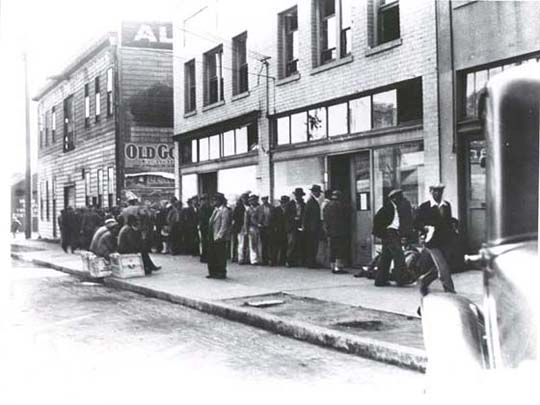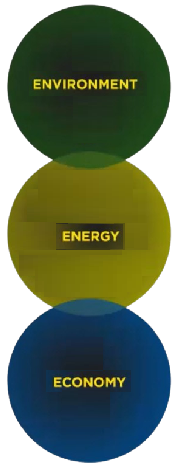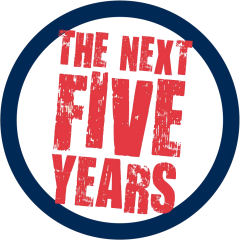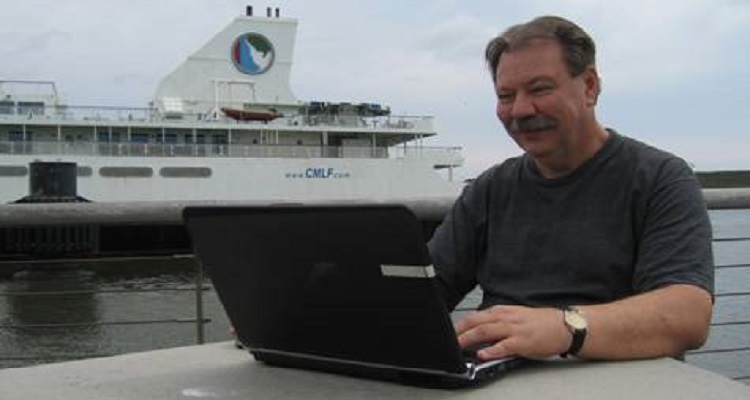Week 3 — Day 1
Economic history is full of patterns, and understanding these patterns can help us prepare for what lies ahead. As we look back at key moments like The Great Depression, the 2008 Financial Crash, and the Economic Collapse of 2020, we see striking similarities that suggest history might be repeating itself.
A Pattern of Booms and Busts

The Roaring Twenties were a time of rapid economic growth, technological innovation, and widespread speculation. Stock markets soared, and optimism about the future seemed boundless. But beneath the surface, there were cracks: rising income inequality, excessive borrowing, and speculative bubbles. When the stock market crashed in 1929, it triggered The Great Depression, plunging millions into poverty.
Fast forward to the mid-2000s. The housing market boom felt unstoppable. Banks were giving out loans like candy, often to people who couldn’t afford them. This created a housing bubble that burst spectacularly, leading to The Great Recession of 2008. Millions lost their homes, jobs, and savings, and the global economy teetered on the brink of collapse.


And then came 2020. While the causes were different — COVID-19 was a global health crisis — the economic impact was eerily similar. Businesses closed, unemployment skyrocketed, and governments scrambled to stabilize their economies. Massive stimulus packages temporarily propped up the system, but questions remain about the long-term consequences.
The Fourth Turning: A Generational Theory

Historians William Strauss and Neil Howe argue in their book The Fourth Turning that history unfolds in cycles of roughly 80 years, divided into four “turnings” or generational phases. According to this theory, we’re currently in the fourth turning, a period of crisis and transformation. The previous fourth turnings include The Great Depression and World War II. These periods are marked by upheaval but also pave the way for renewal.
If the theory holds, we’re in the midst of another transformational period. The combination of economic instability, political polarization, and rapid technological change could be setting the stage for significant societal shifts.
©2020
Adaptation Is Key
If there’s one constant in history, it’s change. Each major crisis forces societies to adapt, often in unexpected ways. During The Great Depression, public works programs and social safety nets were introduced to stabilize the economy. After The Crash of 2008, governments implemented stricter financial regulations to prevent another meltdown. In 2020 and the onset of the Covid-19 Pandemic, we saw the rapid adoption of remote work and digital tools, which showcased the resilience of modern technology.
Adaptation isn’t just about government action; it’s about individuals and communities making informed decisions. Education plays a vital role in helping people understand the challenges they face and equipping them with the tools to overcome them. Whether it’s learning new skills for a changing job market, embracing sustainable practices to protect the environment, or making smarter financial choices, education empowers people to adapt and thrive.
Preparing for the Future
To prepare for the future, we must look beyond the daily "noise" of breaking news and focus on long-term challenges. The economy, environment, and energy — what I call "the 3 E's" — are interconnected issues that demand our attention and action.

- Environment: Climate change and resource depletion are not distant threats—they’re problems we must address today. Small, collective actions like reducing waste, supporting renewable energy, and advocating for sustainable policies can make a difference.
- Energy: The transition to cleaner energy sources is both a challenge and an opportunity. By educating ourselves about the benefits of renewable energy and supporting innovation in this field, we can help drive the shift toward a more sustainable future.
- Economy: Strengthening financial literacy can help individuals navigate uncertainties and build resilience. Understanding economic trends and how they impact everyday life is the first step toward informed decision-making.
Preparing for what lies ahead requires an informed and proactive approach. While history shows us the dangers of ignoring systemic problems, it also teaches us the power of collective action and innovation. By focusing on solutions and fostering a culture of learning, we can turn challenges into opportunities and create a more resilient and equitable future.
The Next 5 Years

While we can’t predict the future, we can follow trends, analyze data, and consider where technology is heading. Experts suggest that artificial intelligence (AI) could reach The Singularity — a point where AI surpasses human intelligence — within the next five years. This presents both opportunities and challenges.
How Can We Prepare?
- Invest in Education: The skills needed for tomorrow are different from those of today. Focus on areas like critical thinking, problem-solving, and technology literacy. Industries driven by AI and automation will need people who can work alongside machines or manage them.
- Plan for Workforce Changes: As AI disrupts industries, massive layoffs could affect both labor and management jobs. Preparing for these changes means staying adaptable, acquiring new skills, and considering alternative career paths.
- Prepare Economically: If the U.S. introduces a central bank digital currency (CBDC), like the "Fed Coin," it could significantly impact the economy. How will this affect cash, pensions, 401(k)s, or other dollar-based assets? Understanding these possibilities now can help protect your financial future.
- Think Long-Term About Energy: As global energy demand rises, we need solutions that are both sustainable and scalable. Investing in renewable energy, supporting innovation, and reducing personal consumption are steps we can take today.
A Wake-Up Call

The Pandemic of 2020 showed us how fragile the global really is and how quickly the world can change. Yet, for many, it’s already a distant memory. But the tsunami of challenges — including economic disruptions, environmental crises, and technological shifts — continues to build. Now is the time to act, not out of fear, but out of a desire to build a better future.
History doesn’t repeat itself exactly, but it often rhymes. By understanding the patterns of the past and taking proactive steps today, we can navigate the uncertainties of tomorrow. The question isn’t if change is coming—it’s how we’ll respond.
Please SUBSCRIBE to my website and leave a comment below.
Until my next post,
Steve

